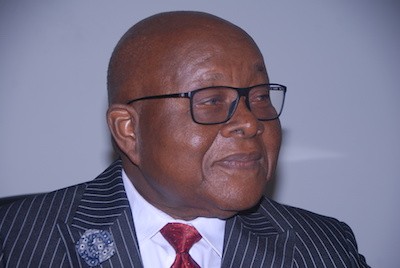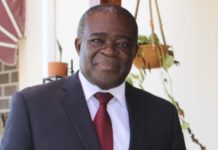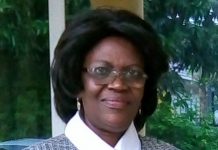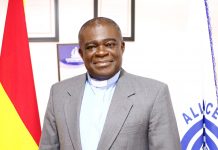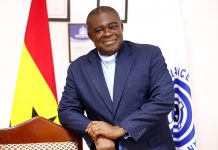|
Getting your Trinity Audio player ready...
|
Professor Aaron Michael Oquaye, former Speaker of Parliament, has called for reforms in the appointment and removal of judges in the 1992 Constitution to strengthen the country’s judicial system.
Prof Oquaye recommended the appointment of two retired Supreme Court Judges nominated by the Roll of Retired Supreme Court Judges, two Senior Lawyers nominated by the Ghana Bar Association, three other persons nominated from the Christian Council, the Catholic Secretariat and the Muslim Council.
These appointments, he explained, would do a better neutral job than the current structure in the 1992 Constitution.
The former Speaker of Parliament was speaking at the launch of Professor Michael Oquaye Centre for Constitutional Studies in Accra organized by the Institute of Economic Affairs, Ghana.
The Centre, established within the Institute will help address the deficit in the country’s Constitution.
The Centre will assist to bring constitutionalism in all the country does, translate the Constitution to the simplest terms and local languages with illustrations.
It will be taught in schools, churches, mosques and civil society generally, to live by the tenets of the Constitution.
Regarding the removal of Judges, Prof Oquaye said the case of Justice Amua Sekyi gave the country the lesson that where the Executive was bent on removing a Judge, it was easier to do so than meets the eye.
“If under Article 146 of the Constitution, the President receives a petition for the removal of a Judge, the President should refer the matter to the Chief Justice (CJ).
“If the CJ is of the view that there is a Prima Facie case, the CJ sets up a committee to investigate the complaint. Three Supreme Court Judges, two other persons (not Lawyers nor from Council of State or parliament), should make a recommendation to the Chief Justice for the suspension of the judge and forwarded to the President for action, “he said.
On decentralization, the former Speaker of Parliament recommended that one-third of appointments by the President should be left to women, and that political parties should operate at the local level.
He said all Chief Executives of Districts, Municipality and Metropolis should be elected to “wean” them off executive control and that District Assemblies’ elections should be two years away from national elections.
On appointment of Council of State members, he suggested the need to introduce institutional and representation and not allow the President to choose his advisors, because the 1992 Constitution gave the President too much power in the appointment of the members.
“We need to adopt the Recommendation of the Committee of Experts which provided that “the Council of State shall aid and counsel the President, the Council of Ministers, Parliament and other organs of State in the performance of their functions under the Constitution or under any other law (Section 3(i)),” he said.



